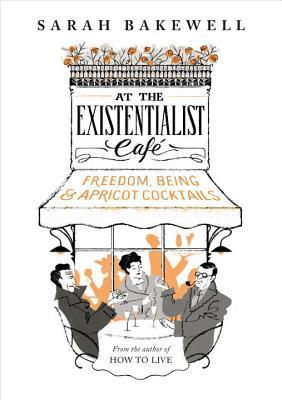Mary Roach sure did! If you ever had any doubts about approaching this potentially daunting subject, let Roach sweep away all your doubts: she makes what might be an otherwise unsavory subject (for some, not all) into one from which you can’t quite tear yourself away. From discovering how much the average ribs can compress before the organs they protect are no longer exactly protected (2.75″, if you’re interested, p.88) to knowing all the different uses a cadaver might serve (apart from the aforementioned) and what took their place before (hello pigs! hello dogs! hello monkeys! to name a few. Though animal substitutes still serve in our place, sometimes alive rather than not. Take that how you will), Roach takes you through human cadaverhood in possibly the most approachable volume you’ll read. She litters the entire book with smart quips and witty remarks, both in the main text as well as in the copious footnotes, which I strongly advise you not to overlook, and renders the lives – if they may be referred to as such? – of human cadavers into stories in their own right, taking them through adventures where their physical safety is imperiled or allowing them to find a nice plot of land in which to decay under varying conditions, entertaining the living every once in a while to show them how they’re faring. There’s never a dull moment as a human cadaver! Have I got you now?
Tag Archives: Non-fiction
At the Existentialist Café
 Sarah Bakewell promises freedom, being and apricot cocktails at this here café, but I think what we get is actually – and I kid you not – a love story. Which is not to say that love stories and freedom, being, and apricot cocktails are mutually exclusive – least of all that last one, I’m sure!
Sarah Bakewell promises freedom, being and apricot cocktails at this here café, but I think what we get is actually – and I kid you not – a love story. Which is not to say that love stories and freedom, being, and apricot cocktails are mutually exclusive – least of all that last one, I’m sure!
I’m going to argue my case. It’s a love story firstly between Bakewell and the existentialist philosophers (and philosophy), but also, through the process of becoming witness to that story, between the reader and – I suppose it’s a pick and choose, but I truly do think he’s the protagonist here – Jean-Paul Sartre. Don’t get me wrong, now. Bakewell does an extremely good job picking apart existentialism and following it through the ages, from its inchoate stages through its evolution in Sartre and other customers of this existentialist café over time. She details their relationships with each other as they become friends, break with each other, try again, and break it off for good. There is a good mix of 1)historical context, which I appreciated a lot and helps give depth to the characters, allowing you to understand what may have served as possible motivators, 2)character development, and 3)the understanding that ideas are not static entities, are subject to change, and sometimes defy attempts at definition. Bakewell embraces #3 from the very start, and having read this book cover to cover, I leave satisfied not being able to provide a clean and simple definition of what exactly constitutes existentialism. But let’s talk about #2: character development. Continue reading
